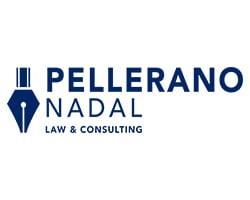1. What are the primary laws and regulations governing the energy sector in the Dominican Republic?
The General Electricity Law No. 125-01, dated 26 July 2001, as amended (the Electricity Law), regulates all stages of production, transmission, distribution and commercialisation of electricity, as well as the functions of the competent government agencies that oversee the energy sector. These agencies are essentially the National Energy Commission (CNE), responsible for national energy policy development and the Superintendence of Electricity (SIE), as the regulatory/supervisory body. In 2007, the Renewable Energy Incentives Law No. 57-07 (Law 57-07) was enacted to provide a number of incentives to businesses developing renewable energy technologies.
In 2014, the Ministry of Energy and Mines (the Ministry) was also created through Law 100-13 as the hierarchically superior body of the CNE, SIE and other entities related to the energy sector, with the purpose of consolidating energy regulation and being the governing body on issues of formulation and administration of national energy policy and mining of metallic and non-metallic sources. The Ministry is responsible for formulating, adopting, monitoring, evaluating and control of policies, strategies, general plans, programmes, projects and services relating to the energy sector and its sub-sectors for electricity, renewable energy, nuclear energy, natural gas and mining.
2. What are the essential components of energy contracts (PPAs) here? Are there any standard contract templates or provisions that are typically included?
While there is no specific template for thermal projects, there are several provisions and conditions particular to the energy industry that we have seen throughout the years, such as: (i) a variety of different terms (duration); (ii) points of purchase; (iii) prices; (iv) indexation methodology; (v) treatment of increases of power demand; (vi) compensation due to lack of supply; (vii) provision of performance guarantees; (viii) take-or-pay provisions; (ix) ability to sell in the spot-market; (x) creditor step-in rights; (xi) change in laws; and (xii) force majeure. The renewable sector has been developed around a more simplistic type of PPA.
3. How are energy-related disputes typically resolved in the Dominican Republic? Is arbitration preferred or are matters usually settled in courts?
Energy-related conflicts can be resolved through various mechanisms, depending on the nature of the conflict and the parties involved, however, ICC arbitration has been very popular, particularly in disputes arising from PPAs with the government.
In the case of a controversy arising from a state bidding process, it shall be filed before the administrative institution that granted the contract through its dispute resolution process. An administrative decision may then be appealed before the Department of Government Procurement, and further appealed to the Superior Administrative Court. Nonetheless, some state tenders also include arbitration clauses in order to resolve the matter without going to court.
4. What are the applicable licences or permits for energy projects? What are the main environmental laws and regulations affecting energy projects?
The Electricity Law establishes two (2) types of concessions: (a) provisional concessions – granted for 18 months, which allows the concessionaire to carry out studies, analysis or surveys on the project land; and, (ii) definitive concessions – granted by an authorisation of the executive branch for a 40-year term, and which may be renewed. Concessions for renewable energy projects must be requested through the CNE and may be granted to companies legally constituted, whether national or foreign.
Projects must also obtain an authorisation to initiate commercial operations from the Coordinating Body of the National Interconnected Electric System (SENI). This authorisation is granted after a customary verification of technical aspects of the project, including but not limited to compliance with the specifications under the Concession Agreement.
The environmental regulations also require that the Ministry of Environment and Natural Resources grants authorisation prior to work being initiated on any project that by its nature may affect the environment and natural resources of the country. They may determine that one of the following may apply depending on the nature of the project: (i) environmental licence – granted to high-impact projects which require an environmental impact study; (ii) environmental permit – granted to moderate impact projects with potential environmental impact, which require an environmental impact statement; (iii) environmental constancy – granted to projects with low environmental impact and required to ensure the compliance with the current environmental regulations; or (iv) minimal impact certificate – granted to minimal impact projects subject to compliance with applicable environmental regulations.
Depending on the nature of the project, there may be other environmental or construction permits and procedures needed such as certification of location of property within or outside a protected area, Non-Objection for Land Use, Interconnection Agreements with (ETED), among others.
5. How does the electric grid and distribution system function in the Dominican Republic?
The electricity market in the Dominican Republic consists of three state distribution companies, a state transmission company and a number of generators, ranging from private to semi-public and public.
Among these is the electric transmission (high and mid tension) system which is under the responsibility of the Dominican Electric Transmission Company (ETED), which has transmission lines around the country.
Distribution is provided by the three companies that purchase electricity from electricity generators to sell in regulated and unregulated markets to end users: Empresa Distribuidora de Electricidad del Norte (Ede Norte), Empresa Distribuidora de Electricidad del Sur (Ede Sur), and Empresa Distribuidora de Electricidad del Este (Ede Este).
Also, created by the Electricity Law, the SENI Coordination Unit plans and coordinates the operation of the interconnected system as well as coordinating and supervising commercial transactions between agents in the wholesale power market. Real-time operation of the SENI is carried out by the Energy Control Centre (CCE), a division of ETED, in coordination with the SENI Coordination Unit. ETED is the state-owned company responsible for operating, maintaining and administering the high-voltage transmission network.
6. What are the tax considerations for energy projects? Are there any specific tax benefits or exemptions available to renewable energy projects?
A major advantage of the sector constitutes the exemption from taxes on fuel purchased for electricity generation under the Hydrocarbons Law, as well as various tax benefits in the area of renewable energy under Law 57-07, which include exemptions on: (i) import duties and taxes; (ii) on the transfer of industrialised goods and services tax (ITBIS) on the equipment and machinery for the production of renewable energy; and (iii) reduction on the tax applicable to interest payments for financings and issuance of carbon credits under the Kyoto agreement, among others.





 What made you decide to become a lawyer and, once you’d made that decision, why did you choose family law?
What made you decide to become a lawyer and, once you’d made that decision, why did you choose family law?
 What made you decide to become a lawyer and why private client?
What made you decide to become a lawyer and why private client? What made you decide to become a lawyer and why practise family law?
What made you decide to become a lawyer and why practise family law?